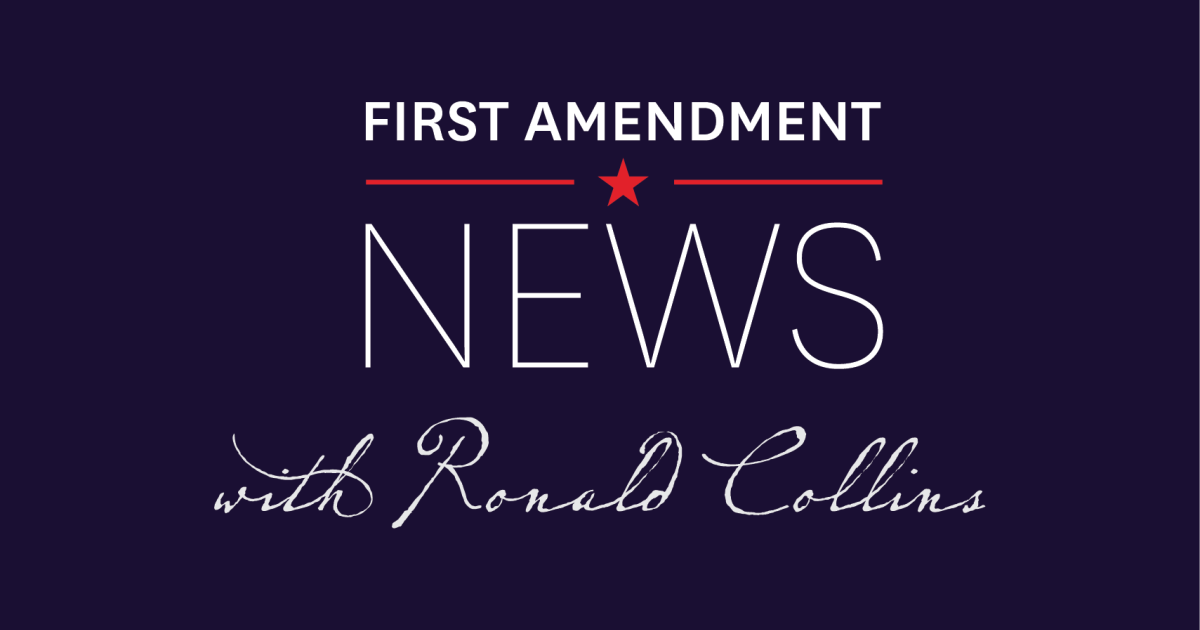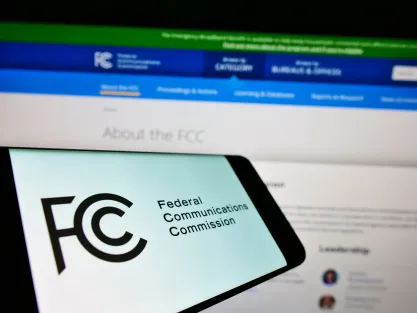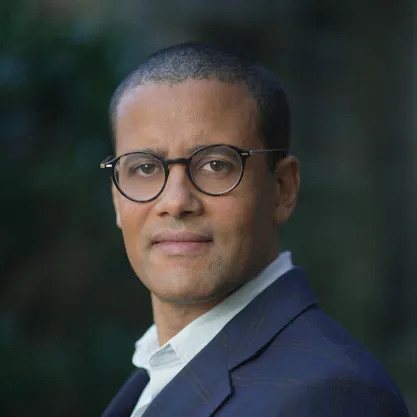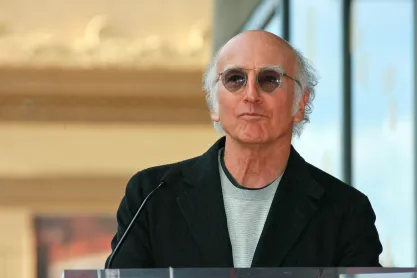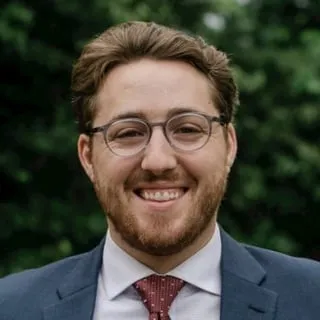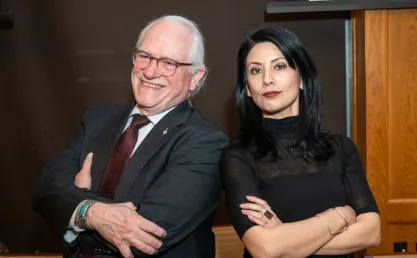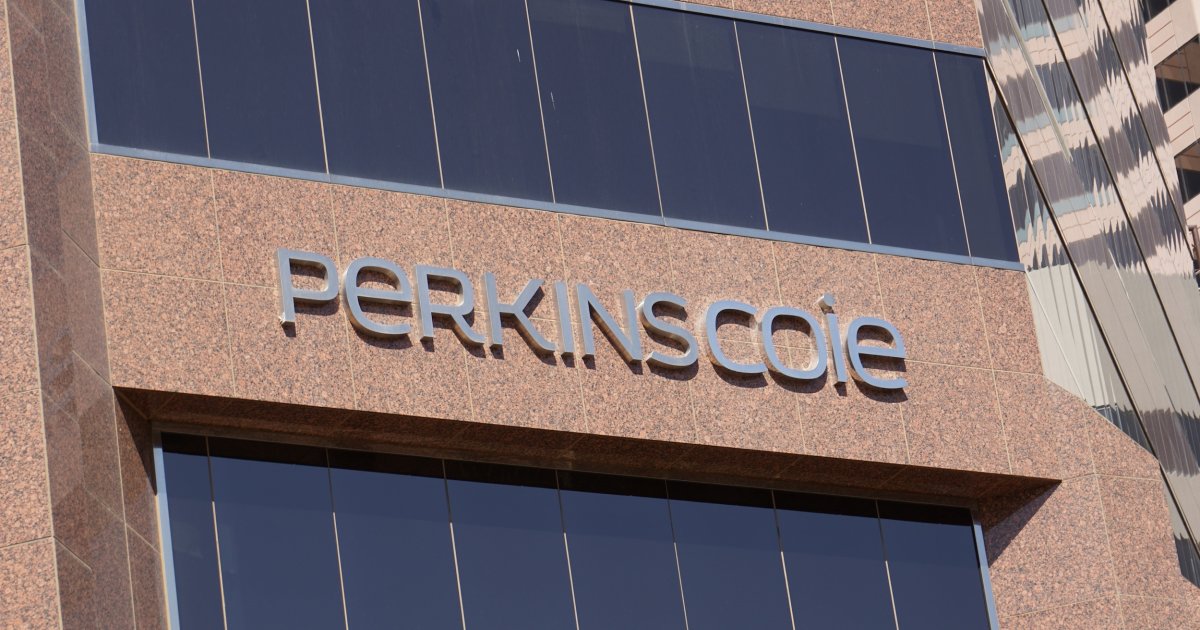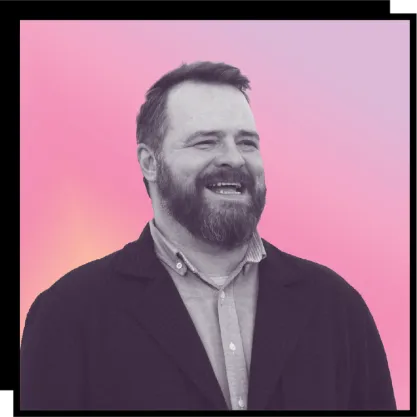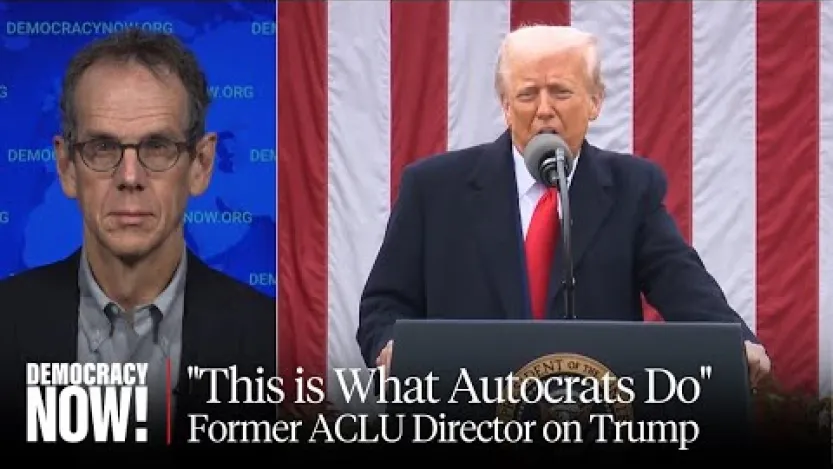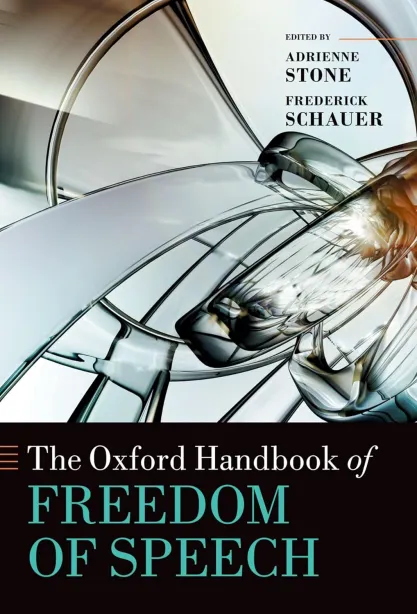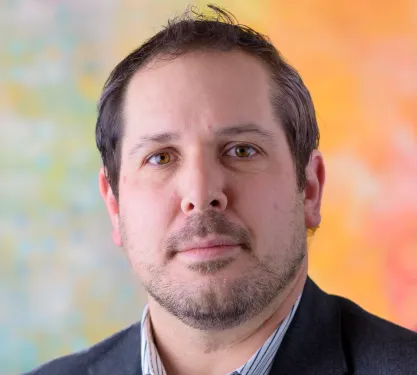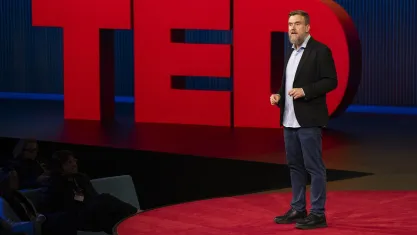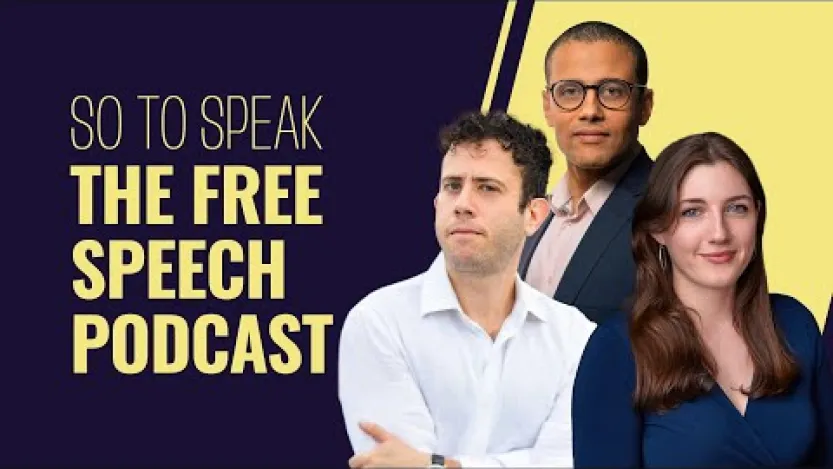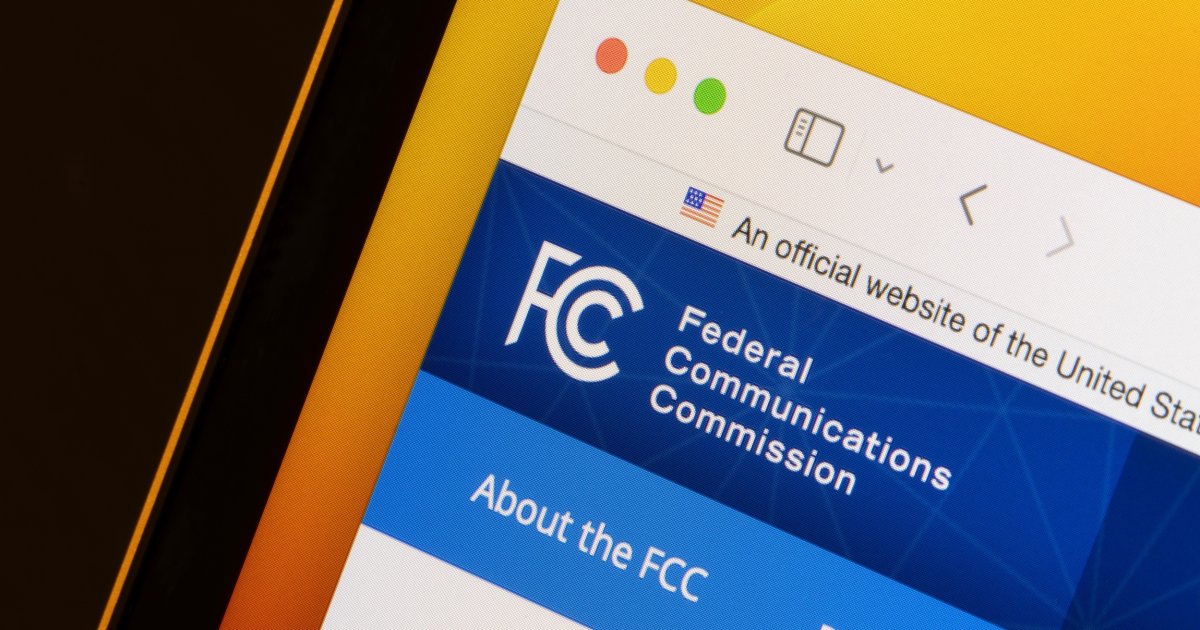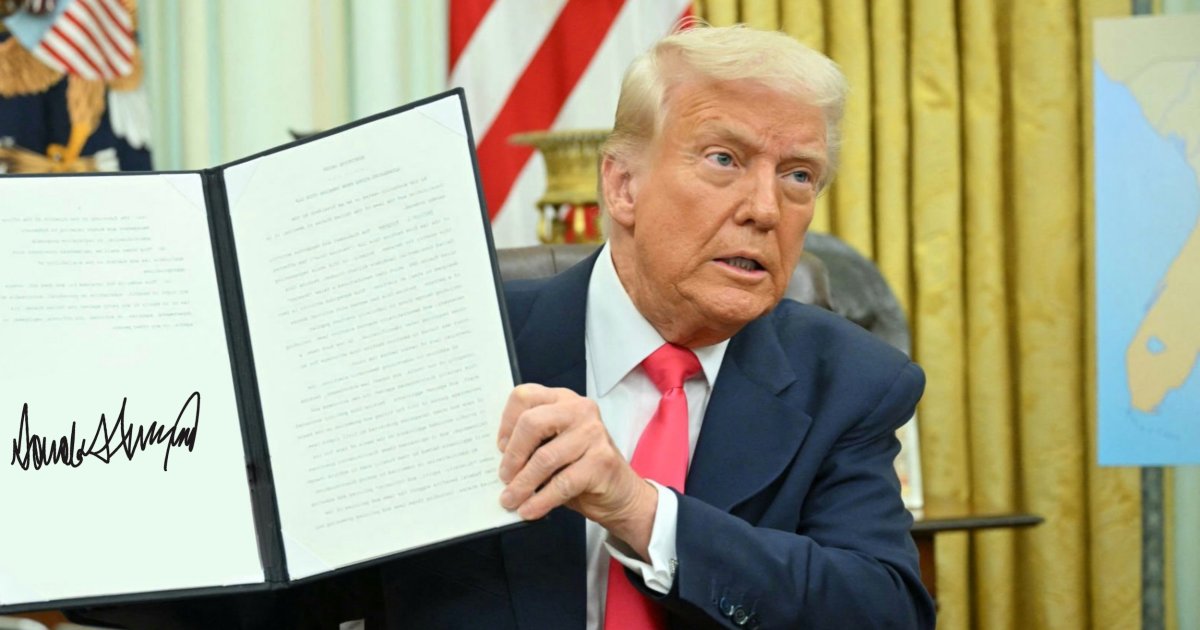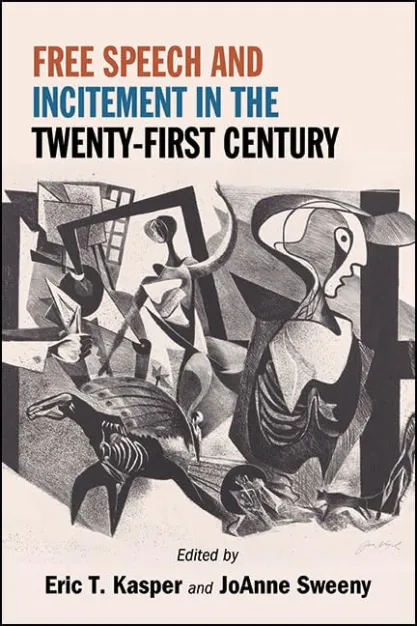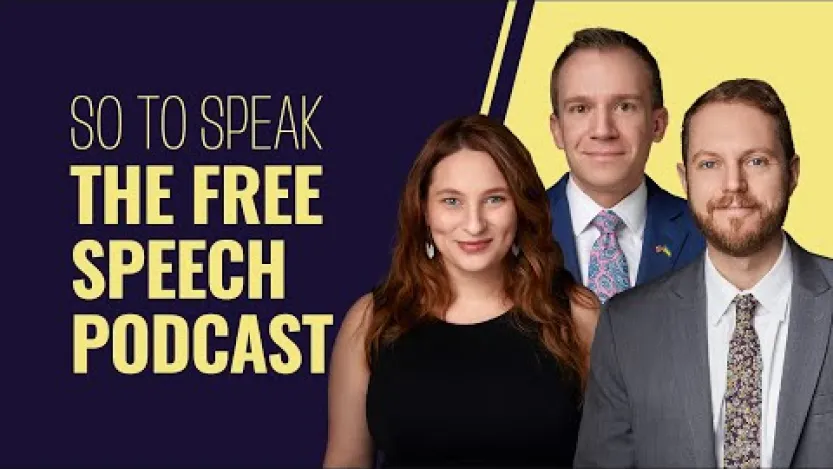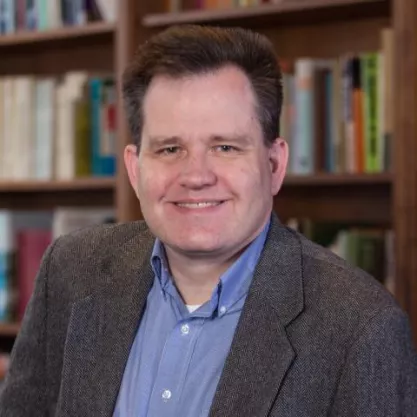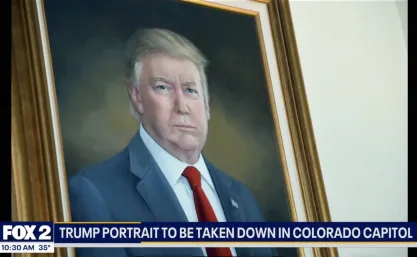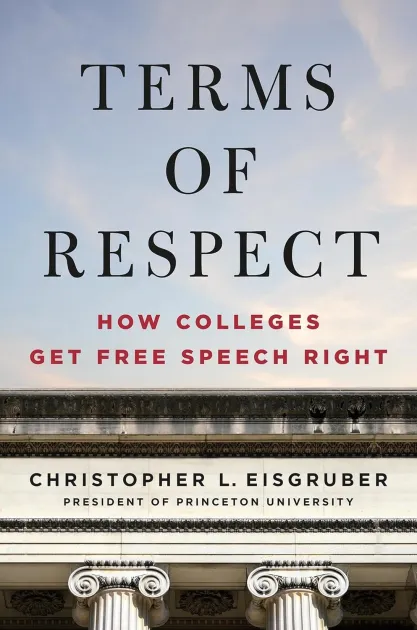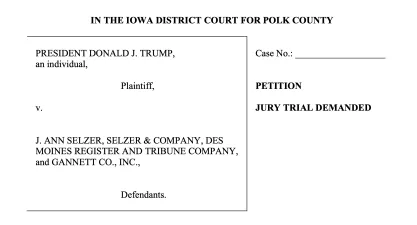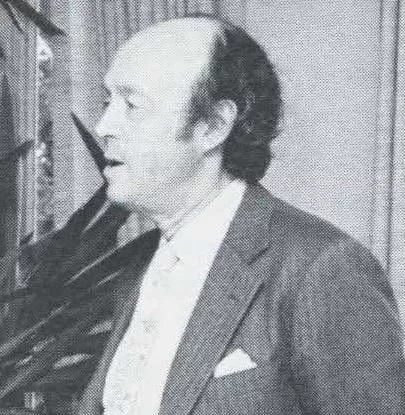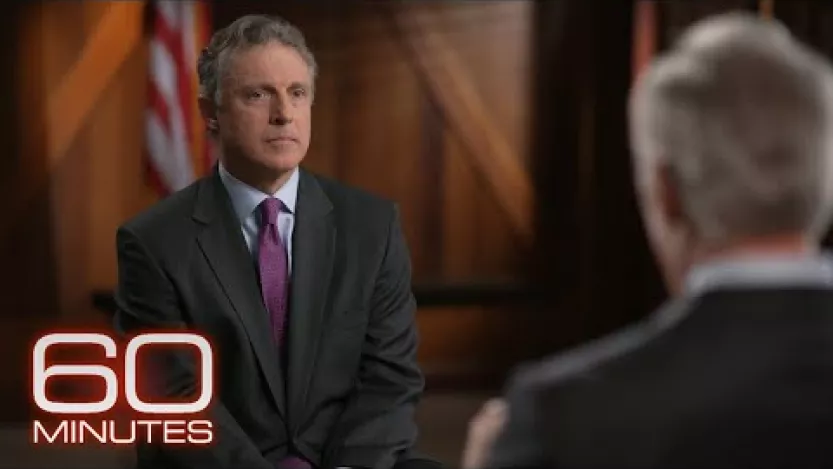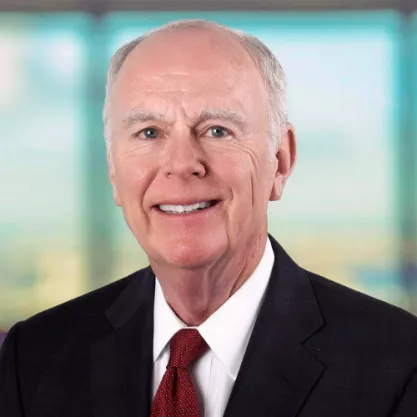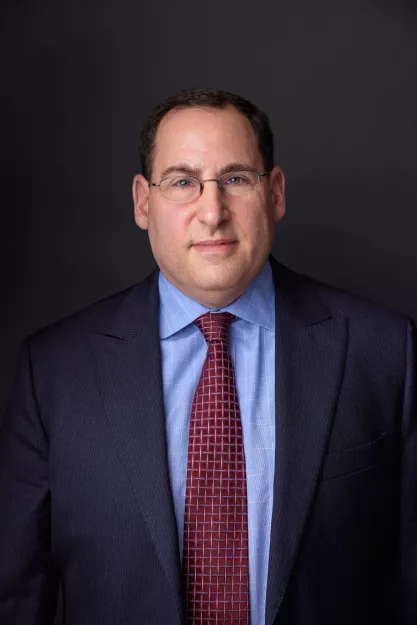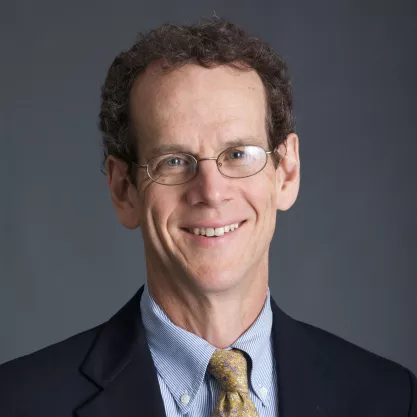“It was nearly impossible to get anyone on camera for this story [on Trump’s attacks on lawyers and law firms], because of the fear now running through our system of justice.” — Scott Pelle, “60 Minutes” (May 4)
That observation prompted my colleague, Angel Eduardo, to caution that we are now in “uncharted and horrifying territory” — a territory governed by coerced compliance. Against that backdrop comes the latest installment of Executive Watch, authored by Professor Timothy Zick.
Previous installments are listed below:
Last week, our colleagues over at First Amendment Watch posted Zick’s “Executive Power and the First Amendment,” an invaluable, comprehensive, and detailed account of the Trump administration’s actions affecting free expression.
In the weeks and months ahead, more FAN posts will appear discussing yet other First Amendment issues related to the Trump administration, its executive orders, and related matters. If this seems excessive, it is because (as Zick and I discuss in a forthcoming scholarly article) the suppressive actions taken by this administration are unprecedented in both their breadth and depth.
To recast an old catchphrase, the free speech takeaway is:
Vigilance in the service of freedom is no vice, and
apathy in response to despotism is no virtue.
Related
Professor Zick’s post is set out below followed by a few news items, including two new federal district court rulings involving First Amendment challenges to anti-DEI executive orders and a NYU Law School item about punishing protestors. — rklc
During his first term as president, Donald Trump signaled that he was not committed to pluralism and expressive liberty when it came to matters like patriotism, public protest, and other forms of dissent. During his second term, Trump has issued multiple executive orders that attempt to impose official orthodoxies or understandings regarding race, gender, patriotism, and other subjects.
As we have seen, these edicts are not merely symbolic. The executive orders call for agency actions and criminal investigations, and place hundreds of millions of dollars in federal funding at risk. The orders have affected what universities teach, which immigrants can migrate to or remain in the United States, which books students and soldiers can read, which version of American history is considered acceptable, which clients law firms can represent, who can serve in the U.S. military, and what kind of scientific research will be allowed.
Ideological purging and authoritarian orthodoxy
My previous post explained how Trump has used executive orders to instigate a whole-of-government assault on free speech, and how that campaign has affected nearly every corner of American life. This post focuses on how Trump has used executive orders to try to purge concepts and ideas from public and private realms and to dictate what is orthodox when it comes to matters Americans sharply disagree on.
Many of Trump’s orders are not only viewpoint discriminatory; their expressly stated purpose is to eradicate certain ideas or ideologies and replace them with officially approved alternatives. Although they seek to impose official ideologies by striking disfavored ideas or concepts, many of the Orders utterly fail to define key concepts, including “diversity, equity, and inclusion (DEI),” “discriminatory equity ideology,” “radical gender ideology,” and “hateful ideology.”
As I explained in my previous installment, such glaring vagueness has a real chilling effect. Faced with losses of many billions in funding or revenue, or with ruinously expensive investigations or prosecutions, many have decided to capitulate or over-comply, scrubbing any potentially offending terms and concepts from trainings, lectures, websites, and other fora.
In 1943, the Supreme Court decided West Virginia State Board of Education v. Barnette, which invalidated a state law mandating that students salute the flag and recite the Pledge of Allegiance at the beginning of each school day. In an iconic and justly famous opinion, Justice Robert H. Jackson wrote:
If there is any fixed star in our constitutional constellation, it is that no official, high or petty, can prescribe what shall be orthodox in politics, nationalism, religion, or other matters of opinion or force citizens to confess by word or act their faith therein.
Trump’s use of executive orders to impose or coerce adoption of official orthodoxies or views is contrary to a foundational First Amendment principle: The government cannot dictate to Americans what ideas they can support or promote or what they believe.
President Trump’s orthodoxies
Presidents have historically used executive orders to change policies and priorities regarding a wide range of matters, from the scope of anti-discrimination laws, to matters relating to service in the military, to the protection of religious or other liberties. For example, a president might instruct executive agencies to adopt specific legal or policy positions on enforcement of anti-discrimination laws or the protection of Second Amendment rights. And, of course, presidents can engage in their own speech about these and other matters, including through executive orders.
Trump has utilized executive orders for some of these purposes, though in novel ways (and for far more trivial ones, such as dictating what kind of straw can be used in federal buildings). But many of his orders do not merely change enforcement policies or call for agencies to regulate the actions of those who are subject to agency jurisdiction. The First Amendment “tell” in the orders is that they direct agencies to root out and censor the “promotion” of disfavored ideas or concepts.
Many of the president’s executive orders reflect his own personal frustrations and grievances, including the promotion of ideas he believes should never have been expressed, and that the federal government should now use its vast powers to suppress. Thus, a central purpose of the orders is to purge disfavored ideas and concepts from schools, companies, libraries, museums, foundations, and scientific research.
The following examples illustrate these points:
Race
- An executive order describes DEI programs as “radical” and “wasteful.” It instructs agencies to coordinate the termination of “all discriminatory programs, including illegal DEI and diversity, equity, inclusion, and accessibility (DEIA) mandates, policies, programs, preferences, and activities in the federal government, under whatever name they appear.” Further, Trump ordered all federal agencies and commissions to provide the director of the Office of Management and Budget with lists of “[f]ederal contractors who have provided DEI training or DEI training materials to agency or department employees” and “[f]ederal grantees who received Federal funding to provide or advance DEI, DEIA, or ‘environmental justice’ programs, services, or activities since Jan. 20, 2021.”
- Here as elsewhere, and absent any definitional guidelines, a second order also targets DEI. It requires an office within the Department of Labor to “immediately cease . . . [p]romoting diversity.” What’s more, the president orders federal agencies to “[e]xcise references to DEI and DEIA principles, under whatever name they may appear, from Federal acquisition, contracting, grants, and financial assistance procedures.”
- “Radical DEI,” an executive order proclaims, must be replaced by “individual dignity, hard work, and excellence,” which are identified as “fundamental to American greatness.”
- Promoting, advocating, or even mentioning “DEI” is also forbidden in the private sector. The president orders agencies to root out DEI and in its place “advance in the private sector the policy of individual initiative, excellence, and hard work.” To that end, the president orders agencies to identify the “most egregious and discriminatory DEI practitioners” within their jurisdictions and to propose investigations of private sector companies to investigate their use of “DEI.”
Gender and gender identity
- In an executive order, “Defending Women From Gender Ideology Extremism and Restoring Biological Truth to the Federal Government,” Trump chastised “ideologues who deny the biological reality of sex.”
- “Basing Federal policy on truth,” the order proclaims, “is critical to scientific inquiry, public safety, morale, and trust in government itself.” The order criticizes understandings of sex or gender that go beyond biology for “[i]nvalidating the true and biological category of ‘woman.’”
- The president rejected “the false claim that males can identify as and thus become women and vice versa” and proclaimed the administration’s intent not to “regard this false claim as true.”
- Trump decreed that “every agency and all Federal employees acting in an official capacity on behalf of their agency shall use the term ‘sex’ and not ‘gender’ in all applicable Federal policies and documents.”
- The order required agency heads to “implement changes to require that government-issued identification documents, including passports, visas, and Global Entry cards, accurately reflect the holder’s sex,” as defined in the order. Further, it requires that “[a]gencies shall remove all statements, policies, regulations, forms, communications, or other internal and external messages that promote or otherwise inculcate gender ideology.”
- In a guidance document sent to all agencies, the acting director of the Office of Personnel Management instructed agency heads to review any programs that “promote or inculcate gender ideology,” place on immediate leave any employees whose job descriptions involve “inculcating or promoting gender ideology,” remove “all outward facing media . . . that inculcate or promote gender ideology,” disable any email features that “prompt users for their pronouns,” cancel trainings and end “resource groups” that “inculcate or promote gender ideology,” and ensure that any agency forms use “sex” instead of “gender” and list only “male” or “female” as options.
- In another order relating to gender, the president characterizes service in the Armed Forces by transgender individuals as a form of “radical gender ideology” that harms the military. The order declares that “adoption of a gender identity inconsistent with an individual’s sex conflicts with a soldier’s commitment to an honorable, truthful, and disciplined lifestyle, even in one’s personal life.” Further, it declares that “a man’s assertion that he is a woman, and his requirement that others honor this falsehood, is not consistent with the humility and selflessness required of a service member.” The Order directs the Secretary of Defense to end all pronoun use in the U.S. Armed Forces and take steps to ban transgender individuals from entering or remaining in service.
- Official views about gender and gender identity are reflected in other executive orders. For example, an order concerning federal funding for K-12 schools tasks multiple agencies with recommending ways to “rescind Federal funds, to the maximum extent consistent with applicable law” that “directly or indirectly support or subsidize the instruction, advancement, or promotion of gender ideology or discriminatory equity ideology.” Regarding federal funding, the order states “Federal funds shall not be used to promote gender ideology. Each agency shall assess grant conditions and grantee preferences and ensure grant funds do not promote gender ideology.”
Patriotism
- The executive order “Ending Radical Indoctrination in K-12 Schooling” conditions federal funding on the adoption by K-12 schools of “patriotic” curricula and threatens to withhold funding from any schools that teach that the United States is “fundamentally racist, sexist or otherwise discriminatory.”
- The order defines “patriotic education” to mean “a presentation of the history of America” that is “inspiring” and “ennobling,” that emphasizes “how the United States has admirably grown closer to its noble principles, and that embraces “the concept that celebration of America’s greatness and history is proper.”
- Trump’s personal conceptions of patriotism are also reflected in executive orders pertaining to immigration and deportation. One order provides that resident aliens who express “hatred for America,” “bear hostile attitudes toward [American] citizens, culture, government, institutions, or founding principles,” or “espouse hateful ideology” will be subject to deportation — a threat the administration has now made good on by deporting international students who have engaged in pro-Palestine protests and expression. The order instructs the Secretary of State and other agencies to “recommend any additional measures to be taken that promote a unified American identity and attachment to the Constitution, laws, and founding principles of the United States.”
American history
- In an executive order titled “Restoring Truth and Sanity to American History,” Trump declares, “It is the policy of my administration to restore Federal sites dedicated to history, including parks and museums, to solemn and uplifting public monuments that remind Americans of our extraordinary heritage, consistent progress toward becoming a more perfect Union, and unmatched record of advancing liberty, prosperity, and human flourishing.” Without even a hint of irony, the order then states, “Museums in our Nation’s capital should be places where individuals go to learn — not to be subjected to ideological indoctrination or divisive narratives that distort our shared history.”
- The “Truth and Sanity” order tasks the vice president and other administration officials with “seeking to remove improper ideology from such properties.” An accompanying “Fact Sheet” boasts that the president has ordered officials “to work to eliminate improper, divisive, or anti-American ideology from the Smithsonian and its museums, education and research centers, and the National Zoo.” Further, Trump vows to remove “divisive ideology” he claims the prior administration adopted — apparently by imposing an ideology that portrays American history only in the most positive light.
Declaring (and leveraging) official ‘Truths’
As the highlighted language above shows, Trump’s executive orders could not be more transparent about their intent: to declare official “truth” and “falsity” regarding race, gender, and other matters and to punish the “promotion,” advocacy, or even references to competing ideas or ideologies. The orders call on agencies to ban or punish the “promotion” of “diversity” and “radical gender ideology,” instruction that is not “patriotic,” and speech that communicates “hostile attitudes” toward American culture or institutions. The orders declare the “truth” of biological sex and forbid the “promotion” of any other conception, while also banning pronouns and the word “gender” in federal programs. The Trump administration seeks to remove so-called “anti-American ideology” from museums.
As I explained in my previous installment, the effect of the administration’s purported “truth-declaring” on expression has been nothing short of extraordinary. Executive agencies have responded, sometimes with absurd results — including removing exhibits about Jackie Robinson, cancelling celebrations of prominent black or female figures, removing books by black authors from libraries, and scrubbing information about the “Enola Gay” from the Department of Defense website.
Similar effects have occurred outside the government. Corporations, universities, and other federal funding recipients have likewise reacted to the president’s orders by removing disfavored words or concepts from websites and other public-facing documents. Universities have cancelled presentations based on concerns that the content of lectures will run afoul of the orders, broadcast stations have been warned that their licenses may be revoked based on DEI policies, and nonprofits have been instructed to remove potentially offending words and phrases from their grant documents.
The effort to punish expression the administration dislikes or disagrees with extends beyond the areas discussed. For example, a Trump executive order targets a former official who served in his first administration for publicly declaring that the 2020 presidential election was not affected by election fraud — a position contrary to Trump’s own oft-repeated (and oft-debunked) “stolen” election narrative.
The administration has defended the orders by claiming that they merely announce new policies and target unlawfully discriminatory actions by funding grantees and others. Some even purport to preserve protection for speech that promotes or advocates what the orders define as “unlawful employment or contracting practices.” But these claims are belied by the orders themselves, which again repeatedly declare “truth” and “falsity” regarding ideas, ban “promotion” or “advocacy” of forbidden ideologies, and purport to dictate which ideas are and are not “anti-American.”
Despite their questionable validity, the orders have been exceptionally successful in terms of censoring and controlling speech. One of the principal reasons for this success is that the orders are generally vague or unclear about what is allowed and forbidden. Thus, although the concept of DEI is critical to determining whether a grantee is entitled to federal funds, none of the executive orders to date have bothered to provide any official and meaningful definition of the concept. Nor is it clear what to them constitutes “hateful ideology,” “anti-American ideology,” “unpatriotic” instruction, or other forbidden expression. To further illustrate the point, the Trump administration has been clear that it views gender as solely a biological concept; however, it has not been clear about what might constitute “radical gender ideology” or what actions will be treated as “promoting” it.
By design, such ambiguity fosters ideological suppression. As Clint Smith observed in an Atlantic article concerning the administration’s insistence that museums not display “divisive” or “anti-American ideology”:
What does it mean for something to be improper if the administration’s understanding of what is acceptable excludes anything that might make white Americans feel bad? Is the statue of Thomas Jefferson surrounded by bricks inscribed with the names of people he enslaved improper? Is a slave cabin that once sat on the grounds of a plantation in South Carolina improper? Are the shackles that were once locked around the feet of enslaved children improper? Is Harriet Tubman’s silk shawl improper? Is Nat Turner’s Bible improper? Is Emmett Till’s casket improper? Are the photographs of men and women who were lynched as white audiences looked on improper?
This kind of vagueness and uncertainty stifles legitimate speech activity. Faced with ambiguity backed by agency enforcement, many grantees will err on the side of avoiding or excising what government officials might view as “false” ideas, forbidden “promotion,” or disfavored language.
The administration has used the pronouncement of its purported “truths” and forbidden “promotion” as leverage — to threaten investigations, agency actions, and funding denials. Thus, the orders state that any grantee who engages in forbidden DEI or promotes “gender ideology” is subject to an Equal Employment Opportunity Commission investigation and substantial funding loss. Charges of engaging in DEI and promoting “radical gender ideology” have provided a pretextual basis for governmental investigations and sanctions against law firms, universities, corporations, broadcasters, and others. For the administration, the lack of clear standards allows it to declare that grantees and others are in default, hence triggering lengthy and invasive investigations. To avoid the sanctions, some targeted entities and individuals have simply folded. The administration has similarly relied on vague definitions or standards regarding so-called “anti-Semitism” to intimidate and coerce universities into “settling” unproven claims.
The undemocratic benefits of vagueness
Thus far, the administration’s lack of clarity has worked in its favor. Given the ambiguity, it can be difficult to demonstrate that the government’s funding decisions are based on disagreement with viewpoints as opposed to responses to what it considers discriminatory practices or shifting policy positions.
Trump’s reliance on vague directives and implicit threats requires that courts treat “jawboning” and other informal means of coercion as just as problematic as more direct forms of suppression. The Supreme Court held in a recent decision that New York officials could not coerce financial institutions to cease dealings with the National Rifle Association. Likewise, the Trump administration is allowed to seek to persuade funding grantees and the Nation that its conceptions of race, gender, patriotism, and history are “true.” But it cannot coerce grantees to accept those “truths” through sanction or suppression of speech.
However this issue is resolved in courts, we should be aware that much of the damage has already been done. As Justice Jackson explained in Barnette, coercing individuals and institutions to accept official orthodoxies “invades the sphere of intellect and spirit which it is the purpose of the First Amendment to our Constitution to reserve from all official control.” More ominously, Jackson warned, allowing officials to dictate what is “true” or “false” in the field of contested ideas leads only to “the unanimity of the graveyard.”
Elections have consequences . . . but imposing orthodoxies cannot be one of them
Governments are entitled to communicate their views about race, gender, patriotism, and other subjects. Further, no one has a legal or constitutional right to federal funding. However, if the government is going to make federal funding available, it cannot deny or remove it based on a grantee’s promotion or advocacy of disfavored ideas or concepts. It cannot punish instructors for teaching or discussing DEI, scientists for conducting research focused on “diverse” or “disadvantaged” patient populations, or museums for communicating “divisive” viewpoints about American culture and history.
One of the key tenets of our First Amendment freedoms is that sometimes minority rights must trump majoritarian will. This is especially true when certain viewpoints are protected while others are prosecuted. By that measure, compelled orthodoxy is an affront to those free speech principles that distinguish our Madisonian democracy from other regimes that give lip service, if that, to such worthy principles.
Court denies First Amendment challenge in anti-DEI case
The case is National Urban League v. Trump (May 2). The Judge was Timothy Kelly (D.D.C.). Excerpt below:
Plaintiffs are three nonprofit organizations that incorporate DEI into their work. They also contract with and receive funding from several federal agencies. Concerned that President Trump’s executive orders will prevent them from fulfilling their organizational missions, Plaintiffs sued to enjoin a host of agencies and officials from enforcing the orders. They moved for a preliminary injunction over a week later, arguing that eight provisions of the orders are unconstitutional under the First or Fifth Amendment — or both. More specifically, Plaintiffs contend that the challenged provisions are impermissibly vague, chill protected speech, and amount to unlawful viewpoint discrimination.
But Plaintiffs have not shown that they are likely to succeed on any of those claims, so the extraordinary relief of a preliminary injunction is unwarranted. For half the challenged provisions, Plaintiffs fail to establish a prerequisite to success on the merits: standing. Presidential directives to subordinates that inflict no concrete harm on private parties — or at least not on these parties — do not present a justiciable case or controversy. And for the remaining provisions, Plaintiffs’ constitutional claims falter for various reasons. Two throughlines explain most of them. The government need not subsidize the exercise of constitutional rights to avoid infringing them, and the Constitution does not provide a right to violate federal antidiscrimination law. And those pressure points are even harder to overcome for Plaintiffs, who bring facial rather than as-applied challenges.
Preliminary injunction remains in force in challenge to anti-DEI order
The case is National Association of Diversity Officers in Higher Education v. Trump (May 1). The Judge is Adam B. Abelson (Dist. Ct., MD). Excerpt below:
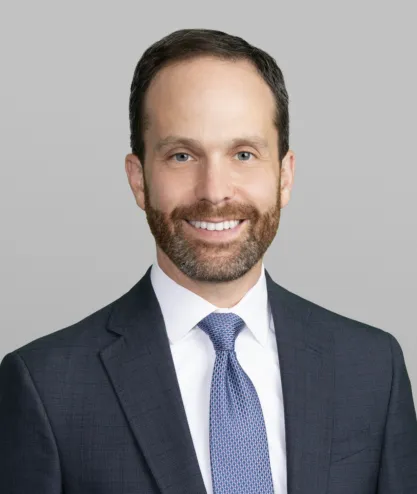
This Court remains of the view that Plaintiffs have shown a strong likelihood of success on the merits of their facial free speech and vagueness claims, as this Court previously explained. . . . The Challenged Provisions forbid government contractors and grantees from engaging in “equity-related” work and from “promoting DEI” in ways the administration may consider to violate antidiscrimination laws; they demand that the “private sector” “end . . . DEI” and threaten “strategic enforcement” to effectuate the “end[ing]” of “DEI”; and they threaten contractors and grantees with enforcement actions with the explicit purpose of ‘deter[ring]’ such ‘programs or principles.’ . . . This Court remains deeply troubled that the Challenged Provisions, which constitute content-based, viewpoint-discriminatory restrictions on speech (in addition to conduct), have the inherent and ineluctable effect of silencing speech that has long been, and remains, protected by the First Amendment. And they do so through impermissibly vague directives that exacerbate the speech-chilling aspects of the Challenged Provisions.
Historically, the metaphor used to describe the effect of laws that restrict speech is “chill.” The more apt metaphor here is “extinguish.” Part of the explicit purpose and effect of the Challenged Provisions is to stifle debate — to silence selected viewpoints, selected discourse — on matters of public concern. They forbid government contractors and grantees from engaging in discourse — including speech such as teaching, conferences, writing, speaking, etc. — if that discourse is “related” to “equity.” And they direct the “private sector” to “end” diversity, to “end” equity, and to “end” inclusion. See J21 Order § 4(b) (directing agencies to “encourage the private sector to end . . . DEI”). “End” is not a mere “chill.” “Deter[rence]” is not a side-effect of the Challenged Provisions; their explicit goal is to “deter” not only “programs” but “principles” — i.e. ideas, concepts, values. After all, the opposite of inclusion is exclusion; the opposite of equity is inequity; and, at least in some forms, the opposite of diversity is segregation.
The government has apparently concluded, and takes the position, that particular employment practices, for example related to hiring or promotion, constitute discrimination in ways that violate Title VI or Title VII. But the Challenged Provisions do far, far more than announce a change in enforcement priorities within the bounds of existing law. For as vague as the Challenged Provisions are about some matters, see ECF No. 44 at 36-44, 53-55, there can be no serious question that the direct and necessary impact of those provisions — and purposeful, to the extent that matters — is to extinguish discourse throughout civil society on what makes our society diverse, the different perspectives we each bring to bear based our respective upbringing, family history, community, economic circumstances, race, national origin, gender, ability, sexual orientation, or the like. These executive directives seek to extinguish discourse about our shared history. They seek to extinguish discourse about how to strive toward greater inclusivity, or even what that means, or whether that is a worthy goal.
[ . . . ]
Upon consideration of the motion to vacate the preliminary injunction, ECF No. 77, and the response and reply thereto, and after oral argument on April 10, 2025, and for the reasons provided above, it is ORDERED that the motion is DENIED.
NYU Law School saga — right to take exams and lawfully protest reinstated
Pro-Palestine law students at New York University have secured a major victory against the university administration’s attempts to silence protests. On May 4, the NYU administration confirmed that 31 law students who had been barred from campus and prohibited from sitting for final exams, unless they sign away their right to protest, are now permitted to take their exams.
“This type of public pressure, the backlash that [the administration] got from not allowing students to sit for exams, was not something that they expected,” said one of the affected NYU law students, who spoke to Peoples Dispatch about this latest decision.
The NYU administration had sent a message out to 31 law students, barring them from campus including to take exams, unless they signed a “Use of Space Agreement” which included the language “you may not participate in any protest activity or disruptive activity on Law School property.” The law students who received the message are accused of participating in peaceful sit-in protests on March 4 and April 29, at NYU’s library and outside the office of the dean of the law school.
These student activists have pointed out that this is a form of protest permitted by the school’s own outlined policies. NYU’s Guidance and Expectations on Student Conduct explicitly states that “peacefully protesting on University property” is a type of “permitted” protest.
Tinker-type case distributed for conference nine times
The case is L.M. v. Town of Middleborough. The issue raised in the case is whether school officials may presume substantial disruption or a violation of the rights of others from a student’s silent, passive, and untargeted ideological speech simply because that speech relates to matters of personal identity, even when the speech responds to the school’s opposing views, actions, or policies.
The case has been on the docket since early October of last year. Since then it has been distributed for conference eight times between Dec. 6, 2024 and May 2, 2025. Eighteen states have filed an amicus brief in support of the petitioner.
More in the news
- “Michigan Drops Charges Against Pro-Palestinian Campus Protesters,” First Amendment Watch (May 6)
- Bobby Ramkissoon, “Alumni seek to rewaken the forgotten fight for free speech at UC San Diego,” FIRE (May 6)
- Safiyah Riddle, “Lawmakers move to mandate Ten Commandments displays, ban pride flags in Ala. schools,” Free Speech Center (May 5)
- Noah Diedrich, “Bill on AI political ads passes into House, awakens First Amendment concerns,” VB Vermont Biz (May 4)
- Eugene Volokh, “Judge Easterbrook: Public Universities Should Have Free Hand in Restricting Professors’ Teaching,” The Volokh Conspiracy (May 3)
- James Kirchick, “Visa Applicants Don’t Have First Amendment Rights,” Politico (May 3)
- “Trump Signs Executive Order Directing Federal Funding Cuts to PBS and NPR,” First Amendment Watch (May 2)
- John Coleman, “Don’t let Texas criminalize free political speech in the name of AI regulation,” FIRE (May 2)
- Amy Gajda, “Heed the Supreme Court’s Warning: Academic Freedom Is Critical For ‘Our Civilization’,” First Amendment Watch (May 2)
2024-2025 SCOTUS term: Free expression and related cases
Cases decided
- Villarreal v. Alaniz (Petition granted. Judgment vacated and case remanded for further consideration in light of Gonzalez v. Trevino, 602 U. S. ___ (2024) (per curiam))
- Murphy v. Schmitt (“The petition for a writ of certiorari is granted. The judgment is vacated, and the case is remanded to the United States Court of Appeals for the Eighth Circuit for further consideration in light of Gonzalez v. Trevino, 602 U. S. ___ (2024) (per curiam).”)
- TikTok Inc. and ByteDance Ltd v. Garland (9-0: The challenged provisions of the Protecting Americans from Foreign Adversary Controlled Applications Act do not violate petitioners’ First Amendment rights.)
Review granted
Pending petitions
Petitions denied
Emergency Applications
- Yost v. Ohio Attorney General (Kavanaugh, J., “IT IS ORDERED that the March 14, 2025 order of the United States District Court for the Southern District of Ohio, case No. 2:24-cv-1401, is hereby stayed pending further order of the undersigned or of the Court. It is further ordered that a response to the application be filed on or before Wednesday, April 16, 2025, by 5 p.m. (EDT).”)
Free speech related
- Mahmoud v. Taylor (argued April 22 / free exercise case: issue: Whether public schools burden parents’ religious exercise when they compel elementary school children to participate in instruction on gender and sexuality against their parents’ religious convictions and without notice or opportunity to opt out.)
- Thompson v. United States (decided: 3-21-25/ 9-0 w special concurrences by Alito and Jackson) (interpretation of 18 U. S. C. §1014 re: “false statements”)
Last scheduled FAN
This article is part of First Amendment News, an editorially independent publication edited by Ronald K. L. Collins and hosted by FIRE as part of our mission to educate the public about First Amendment issues. The opinions expressed are those of the article’s author(s) and may not reflect the opinions of FIRE or Mr. Collins.

